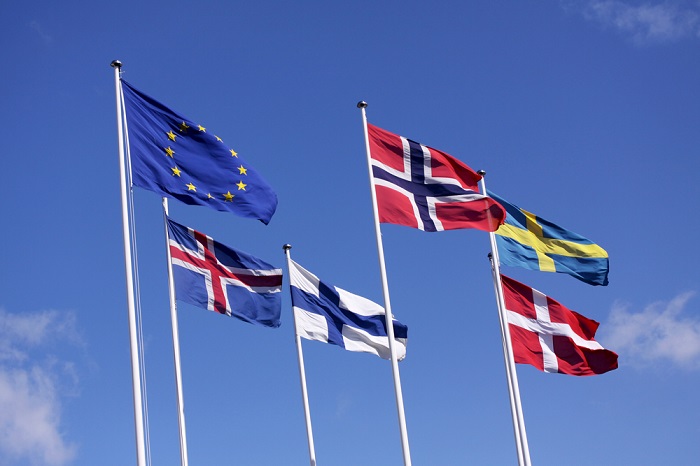
The Nordic and Baltic financial associations joined forces and released their common goals for the upcoming EU legislature. These EU policy recommendations focus on sustainable finance, money laundering, digitalisation, cyber security and a more integrated Capital Markets Union. As EU regulation plays a crucial role in the financial sector, it is wise to unite in key issues to create a stronger voice.
Starting in July, Finance Finland (FFI) will share an office in Brussels with the Swedish Bankers’ Association, Finance Denmark and Finance Norway, enabling smoother communication between the countries. After the summer, FFI’s experts can start working in the shared office during their frequent visits to Brussels.
“In big themes, we can better outline our common Nordic needs”, says Mari Pekonen-Ranta, director of EU affairs at FFI. The countries can begin to influence prioritised matters as soon as the new parliamentary term begins.
Now is the time to join forces: the legislative programme is currently being prepared, the new Commission will begin its work in the autumn, and a great number of new MEPs will soon be elected to the Parliament. The purpose of the Nordic-Baltic recommendations is to shed light on the themes that these countries consider important for the financial sector. The Nordic countries have also introduced their objectives on the implementation of the Basel IV capital requirements regulation.
The financial sector takes responsibility
The Nordic-Baltic financial sector is committed to be an active participant in the transition to a sustainable European economy.
“The EU is the third largest polluter in the world after China and the United States, so we play a key role in the battle to keep our planet viable for future generations”, explains Pekonen-Ranta. “We hope the EU regulation will serve as an example to other countries as well.”
Money laundering is international crime by nature. Preventing money laundering and tax evasion therefore requires harmonised legislation and better collaboration between authorities both at national and EU levels.
“We must improve information exchange between the private sector and the authorities in cases that have cross-border elements. Financial companies should also be allowed to exchange information about suspicious transactions. This would help prevent crime in which the window of opportunity is only minutes”, says Pekonen-Ranta.
Healthy capital markets in a digital Europe
Much work remains to be done in creating a more integrated EU Capital Markets Union. According to the Nordic-Baltic financial associations, strong and versatile EU capital markets will become even more important in the coming years, as UK capital markets will no longer be part of the core European market.
“Europe needs a competitive legal framework that supports mutually complementing forms of bank credit and capital markets funding.”
The Nordic financial sector is also devoted to exploring new opportunities and promoting a safe digital Europe that will benefit both consumers and businesses.
“EU regulation must allow the development of new technologies and enforce consumer protection. Cyber security must be an integral part of all new digital projects”, details Pekonen-Ranta.
Nordic insurance federations are also outlining their recommendations to the new European decision-makers. These recommendations concern the Solvency II reform, the importance of sustainable finance in the insurance sector, the ethics in the use of AI and data, and the role of private insurance in the Nordic welfare model.
Read the Nordic-Baltic financial sector EU policy recommendations in full
Still have questions?
|Contact FFI experts



